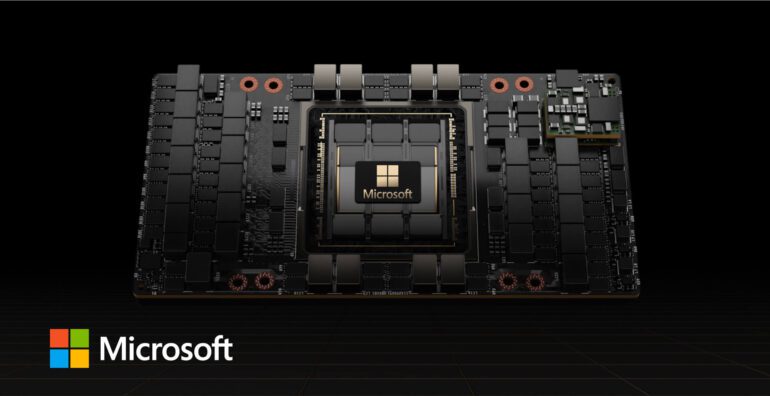TL;DR:
- Microsoft to unveil its first AI processor to reduce reliance on Nvidia.
- Aimed at data centers and enhancing AI features in productivity apps.
- Potential to disrupt Nvidia’s dominant market position.
- OpenAI is also exploring AI chip development.
- Collaboration with AMD to strengthen AI chip offerings.
- Positions Microsoft alongside Amazon and Google in AI chip development.
Main AI News:
In a strategic move to optimize operational costs, Microsoft is poised to introduce its inaugural artificial intelligence (AI) processor. This innovative endeavor is anticipated to be revealed at the tech titan’s annual developers’ conference, according to insider information reported by The Information.
Over the years, Microsoft has meticulously crafted this specialized chip, designed to spearhead AI-driven workloads. The company’s decision to forge ahead with this development is driven by a desire to reduce its heavy dependence on Nvidia (NASDAQ: NVDA), a primary supplier of the GPUs essential for AI tasks and large language model training.
August findings from UBS underscored the reality that Microsoft’s access to GPUs is somewhat constrained. This limitation could potentially hinder the generation of substantial AI revenue streams in the coming year. However, the prospect of producing its GPUs could serve as an effective risk mitigation strategy.
Publicly, Microsoft has affirmed its ongoing commitment to purchasing Nvidia GPUs. Yet, the imminent introduction of Microsoft’s proprietary processor holds the potential to disrupt the status quo significantly.
This groundbreaking Microsoft processor targets not only data center servers but also augments AI functionalities within the company’s suite of productivity applications, as reported by our sources. Small cohorts of employees, hailing from both Microsoft and Microsoft-backed OpenAI, have been discreetly testing these chips, marking a pivotal step in their journey toward implementation.
Interestingly, OpenAI, having secured substantial funding from Microsoft, is reportedly exploring the development of its AI chips. The organization has even assessed potential acquisition opportunities in this realm.
Earlier this year, insider reports revealed that Microsoft, operating under the secretive codename “Project Athena,” had been diligently crafting this AI chip. Additionally, the company has been collaborating with AMD to bolster its AI-focused chip offerings.
Should Microsoft proceed with the launch of its AI chip, it would position the tech juggernaut in the same league as industry titans Amazon and Google. Both giants have already ventured into the realm of AI chip development, with Amazon unveiling Inferentia and Google presenting the Tensor Processing Unit (TPU) as their respective contributions to the burgeoning AI landscape.
Conclusion:
Microsoft’s imminent entry into AI chip manufacturing signifies a strategic shift aimed at reducing costs and decreasing dependence on Nvidia. This move, alongside potential collaborations with AMD and OpenAI, positions Microsoft to compete in the rapidly evolving AI chip market, alongside major players like Amazon and Google. This diversification in chip production could have significant implications for the AI hardware landscape and may foster innovation and competition in the industry.

